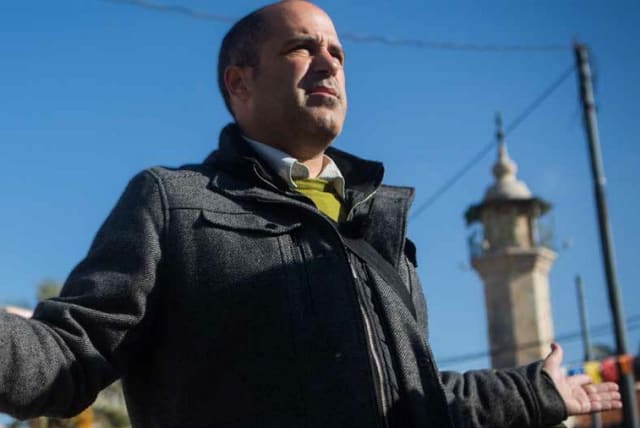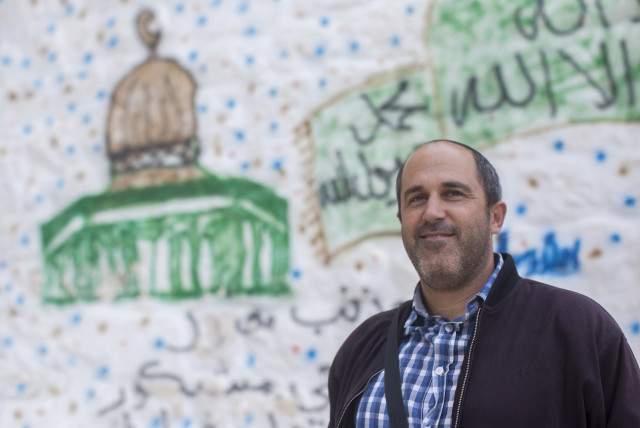Grapevine: Righteous streets

Movers and shakers in Israeli society.
If ever anyone deserved to have a street in Jerusalem named in his memory, it was Rabbi Yeshayahu Heber, who founded Matanat Hayim (Gift of Life), which promotes and facilitates kidney transplants. The beauty of kidney transplants is that they don’t require the donor to be dead. Thousands of people around the world live with only one kidney, and they don’t miss the one they gave away in order to prolong the life of another human being. It is one of the most altruistic gifts that one person can give to another. Heber, who himself had undergone a kidney transplant, subsequently founded the organization in 2009. Since then, it has overseen well in excess of 1,500 successful transplants.
Ironically, Heber died in April 2020 at age 55, after contracting COVID. His wife, Rabbanit Rachel Heber, is continuing her husband’s work.
The Municipal Public Names Committee last month decided to name a number of streets after people who had left an indelible imprint on society. Among them was Rabbi Heber.
Another street is to be named after Prof. Reuven Feuerstein, who was a Worthy of Jerusalem and an Israel Prize laureate. More importantly, Feuerstein was a clinical developmental and cognitive psychologist, who believed that cognitive problems in children could be modified and their cognitive functions greatly improved. The methods he developed have been used by educators to enable such children to reach their potential.
CHANCES ARE high that Deputy Mayor Aryeh King, who is again running for office, will be back in his current spot. That’s bad news for the LGBTQ community and for the non-Jewish community. King is known to be opposed to both, and in the past he has sought to close the gay community’s Open House. He also wants to encourage non-Jews to leave Israel. Non-Jews have lived in Israel for hundreds of years and have every right to remain, just as Jews are permitted to live in the countries of the Diaspora. As for gays, King fails to realize that sexual orientation is not a matter of choice.
Hebrew University profs. get President's Medal of Honor
THE POWERS that be at the Hebrew University are kvelling over the fact that two of their professors, Mona Khoury-Kassabri and Meir Buzaglo, were this week among the recipients of the President’s Medal of Honor, awarded to them by President Isaac Herzog at a festive ceremony at the President’s Residence.
Prof. Mona Khoury-Kassabri is the Hebrew University vice president for Strategy and Diversity and is responsible for broadening the ranks of the university’s academic staff and student body with members from underrepresented communities in academia, including ultra-Orthodox Jews, Arabs, Ethiopians, and people with disabilities.
Prof. Meir Buzaglo is a lecturer at the Philosophy Department and is a cum laude alumnus of the university. He sits on numerous cultural and education committees and is a trustee of the Avi Chai Foundation. He is also a leader of the renewal of Jewish tradition and liturgical poetry (piyyut) in Israel, and in recent years he has led the Tikkun movement for social change. He is frequently heard on Friday afternoons on Reshet Bet radio on a program hosted by Kobi Oz.
Hotel refurbishing
SEVERAL HOTELS took the opportunity during the lull in tourism due to the corona pandemic to renovate and refurbish their premises. Among them was the Jerusalem Gate Hotel on Yermiyahu Street, at the entrance to the city. The hotel offers all the usual amenities, plus one that is not ordinarily advertised. Special provision has been made during Sukkot for men to sleep in the giant sukkah. In ultra-Orthodox circles, it is customary not only to eat in the sukkah throughout Sukkot but also for men to sleep there. As the hotel is located in the ultra-Orthodox neighborhood of Romema, it is making sure that its clientele can follow this tradition if they so desire.
Construction traps Israelis in their homes
TO WHAT extent do due diligence checks take people with physical disabilities into account? Yediot Aharonot reported last week that two such residents of Kiryat Yovel have been stuck in their apartments for more than a week due to a pinui binui (“evacuate and build”) project adjacent to their homes. An access path on which Shimon Cohen, 50, and David Efriat, 73, drive their wheelchairs to and from the street has been blocked in the construction process. They do not know if or when the access path will be restored.
No real estate developer has the right to remove essential access paths without providing an alternative. Unfortunately, the urban renewal craze not only overlooks such issues but also ignores the wishes of residents who are opposed to changes in their neighborhood (as well as those of a minority of apartment owners who do not want to move out of their homes which will be designated as part of an evacuate and build project). There was a time when, if only one resident objected, the plan was shelved. Today, if a minimum of 67% of the residents want it, the plan goes ahead regardless of the wishes of the other 33%. Moreover, in cases where absolute specifics do not appear in the contract, the developer can eventually assign apartment floors arbitrarily, regardless on which floor residents lived previously. Another factor that many enthusiastic apartment owners do not take into account is that because the new building will be much higher, there will be at least one elevator, and possibly as many as four, for which they will have to pay a monthly maintenance fee. The maintenance fee which they currently pay will increase considerably, and not everyone will be able to afford it.
But back to Kiryat Yovel. According to the report, a complaint was made to the municipality, whose response was that the access path is on private property, so there is nothing they can do.
Efriat, who as a child was stricken with polio, has been using the access path for 60 years. Two years ago, he suffered a stroke and now cannot operate his wheelchair alone and requires a constant caregiver. He fears that he will be housebound for at least another two years.
Itamar Ben-Gvir: Israel's speed demon?
NATIONAL SECURITY Minister Itamar Ben-Gvir is frequently criticized for racist attitudes and for ignoring the rules on various issues. It now transpires that the latter includes traffic violations. According to a front-page report in Haaretz this week, the Israel Security Agency has complained to the Prime Minister’s Office, and to Ben-Gvir’s own office, that the minister instructs his drivers to drive at faster speeds than the law permits and to drive through red lights. He behaves as if he were the prime minister, an ISA official told reporter Josh Breiner.
Ben-Gvir is not alone in violating traffic regulations. Municipal vehicles drive in the wrong direction into one-way streets or just back up them all the way; park on the sidewalks, forcing pedestrians onto the road; and even drive through pedestrian malls.
greerfc@gmail.com
Jerusalem Post Store
`; document.getElementById("linkPremium").innerHTML = cont; var divWithLink = document.getElementById("premium-link"); if (divWithLink !== null && divWithLink !== 'undefined') { divWithLink.style.border = "solid 1px #cb0f3e"; divWithLink.style.textAlign = "center"; divWithLink.style.marginBottom = "15px"; divWithLink.style.marginTop = "15px"; divWithLink.style.width = "100%"; divWithLink.style.backgroundColor = "#122952"; divWithLink.style.color = "#ffffff"; divWithLink.style.lineHeight = "1.5"; } } (function (v, i) { });

